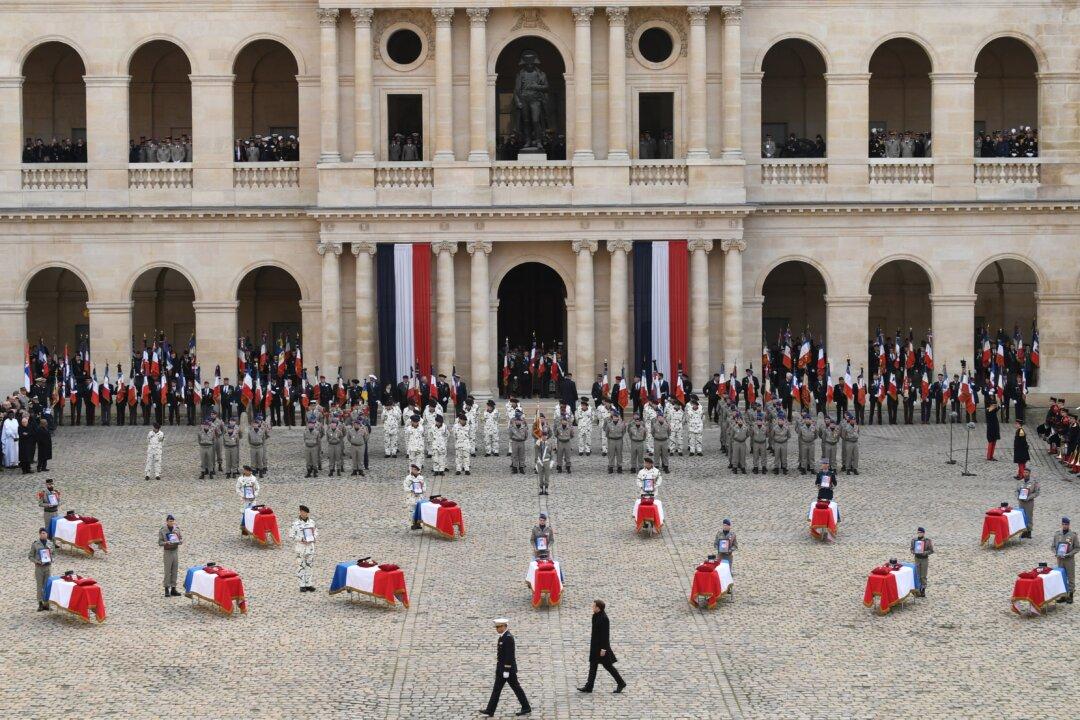JOHANNESBURG—Attacks by jihadists affiliated with international terror groups such as al-Qaeda and ISIS are spiking, according to security analysts, as France’s presence wanes in African countries where up until recently it wielded economic, military, and political influence.
“Territories previously controlled by French troops are now occupied by Islamic extremist groups who are trying to expand across the continent,” said Jasmine Opperman, a terrorism expert based in Pretoria, South Africa, with the Armed Conflict Location and Event Data Project (ACLED).





